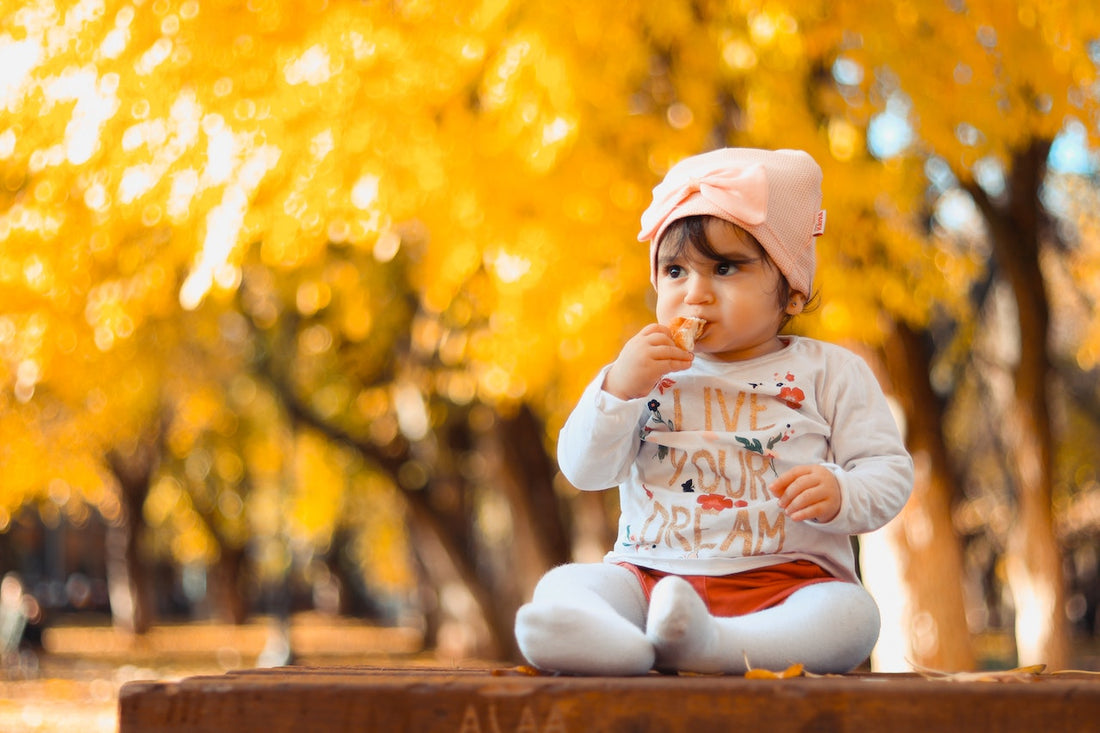Introducing solids to your baby is often a time of great excitement, but it can also be a little nerve-wracking. Read this article for a quick-and-easy guide on how to introduce solids to your baby.
When do babies start eating baby food?
There is no one perfect time to start solid foods. However, most babies are ready to start on solids around six months old. This is when they have developed the needed motor skills. But the best age to start baby food is when they:
- Can sit unsupported while holding their necks up.
- Have lost their tongue-thrust reflex, the ability to push food back out of their mouths.
- Can coordinate their eyes, hands, and mouth, so they can look at food, pick it up, and put it in their mouth.
- Make mouthing or chewing motions.
- Show an interest in what you are eating.
What to introduce first
The best first foods for a baby are simple foods such as rice cereal, puréed fruits, vegetables, or mashed potatoes. These help your baby get used to the new textures and tastes of solid foods without being overwhelmed.
Feeding smart right from the start
It's important to start slowly. Start with just a few spoonfuls of baby food once or twice a day, and gradually increase the amount and types as your baby gets used to eating solid foods.
Test for allergens
When starting your baby on solid food, introduce new foods one at a time and wait a few days between each new food to watch for any signs of allergies. These could include a rash or hives, wheezing or difficulty breathing, vomiting or diarrhea, excessive gas, or blood in their stools.
What to avoid
Certain solid foods should be completely avoided when they start on solids. These include:
- Honey: Honey can contain bacteria, which can cause serious illness in infants. Avoid giving your baby honey until they are at least one year old.
- Nuts and peanuts: These can be a choking hazard for babies and should be avoided until your child is at least three or four years old.
- Popcorn: Popcorn can be a choking hazard for babies and should be avoided until your child is at least three or four years old.
- Raw meat and fish: These can contain harmful bacteria that can make your baby sick. Cook all meat and fish thoroughly before feeding them to your baby.
- Shellfish: Shellfish can contain harmful bacteria that can make your baby sick. Avoid giving shellfish to your baby until they are at least two years old.
Manage mealtimes
When it comes to mealtime management with a baby, there are a few key things to keep in mind. Be patient – it may take a few tries before your baby gets the hang of eating solid foods. Don't worry if your baby makes a mess – that's all part of the learning process!
Get creative
Gradually introduce new foods over time, mixing different flavors and textures, so your baby can explore all that solid foods have to offer! Ensure you're giving your baby a variety of healthy foods. They need nutrient-rich foods to support their growing bodies, so give them a mix of fruits, vegetables, whole grains, and proteins.
Speak to your pediatrician
Talk to your pediatrician before proceeding if you have any concerns about starting solid foods or if your baby has any allergies or other medical conditions. Also, contact them immediately if your baby shows any allergic reactions.
A few important items you'll need when you start the solids process
- A high chair – You'll need a safe place for your baby to sit during mealtimes.
- Baby spoons and bowls – You'll need utensils specifically created for babies that can also sit securely on the table for mealtimes.
- Bibs – Bibs are essential to help keep mealtime messes to a minimum.
- A sippy cup – This will come in handy once your baby starts drinking more than just breast milk or formula.
- Snacks containers – You'll need baby-proof snack packs for all your trips.
- Towels – Have some towels on hand in case of spills or messes while your baby eats.

